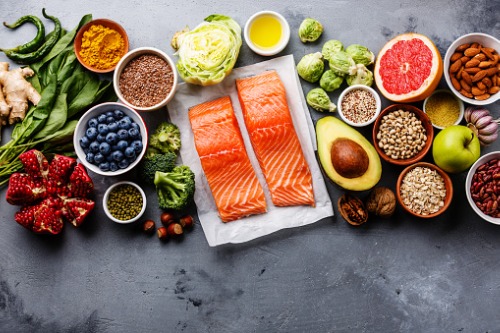
Reports about students’ excessive social media use have prompted schools and governments to find new, and more effective ways, of getting students to read more and spend less time facing screens.
In tandem with such efforts, schools are also encouraging children to start eating healthier, as excessive screen time often equates to a sedentary lifestyle.
A poor and imbalanced diet from an early age also leading to an increase in childhood obesity, studies have shown.
Data from the Australian Institute of Health and Welfare in 2019 found that 25% of Australians aged 2-17 in 2017-2018 were either overweight or obese. This further increases the older Australians get – with 67% of adults being either overweight or obese in the same period.
Associate Professor Kathryn Backholder, from Deakin University’s Institute for Health Transformation Global Obesity Centre, said it is important to improve the diet of pre-school age children as this is the age where their lifetime habits are shaped.
Associate Professor Backholder is also a co-author of a study which found that Australian children aged below five are drinking unhealthy sweet drinks at alarming quantities.
Monash University PhD candidate and lead author Alexandra Chung said that education is the key to changing the eating and drinking habits.
"Both food marketing and pricing are beyond parents' control, which means we need to be doing more from a policy point of view to step up and make the healthy choice the easy choice,” Chung said.
“Parents have to face very difficult decisions multiple times per day. So from a health perspective, if we can make the environment easier for parents why wouldn't we?”
Making better decisions
But between school and home, a joint study conducted by the University of South Australia and Flinders University found that parents have a bigger role to play in getting their children to eat healthier.
“Parents hold the purse strings to the family pantry, which means they can help make a big difference in improving children’s diets,” lead researcher and PhD candidate Brittany Johnson said.
However, Johnson points out that children eat eight times more than the recommended serving of unhealthy food such as cakes, biscuits, savoury pastries and takeaways. Further, less than 5% of children only manage to eat the recommended daily amount of vegetables.
To get their children to start developing healthier eating habits, Johnson said parents can use simple solutions, such as avoiding the confectionary aisle at the grocery store and being more selective in choosing off-the-shelf school snacks which are usually full of fats, sugar and salt.
“To improve children’s diet quality and reduce the risk of chronic conditions we need novel, scalable and effective interventions,” Johnson said.
“We must better support parents to make positive changes. This can include providing clear information about unhealthy food recommendations, appropriate portion sizes, the benefits of children eating healthier foods and the impact of unhealthy choices”.
The ‘devil in the detail’
At times, seemingly healthy snacks can also contain harmful substances for children. New research from the Royal Melbourne Institute of Technology found that 75% of rice snacks in Australia contain inorganic arsenic levels above EU safety guidelines.
“Children are far more vulnerable to the long-term toxic effect of metals like arsenic, but our rice guidelines are based on adults,” RMIT environmental toxicologist and senior researcher, Associate Professor Suzie Reichman, said.
Further, the current guidelines used are based on outdated dietary habits, as it was made at a time when rice consumption of Australian families was lower. But more children, especially those who are gluten intolerant, are starting to eat rice-based products.
“Rice can be safely eaten as part of a well-rounded, balanced diet, but if it’s a child’s main source of carbohydrates, that could be a problem,” Associate Professor Reichman said.
“As a general rule, we recommend that children under five eat rice in moderation and parents should avoid serving rice at every meal, to minimise the risk of exposure to arsenic”.


